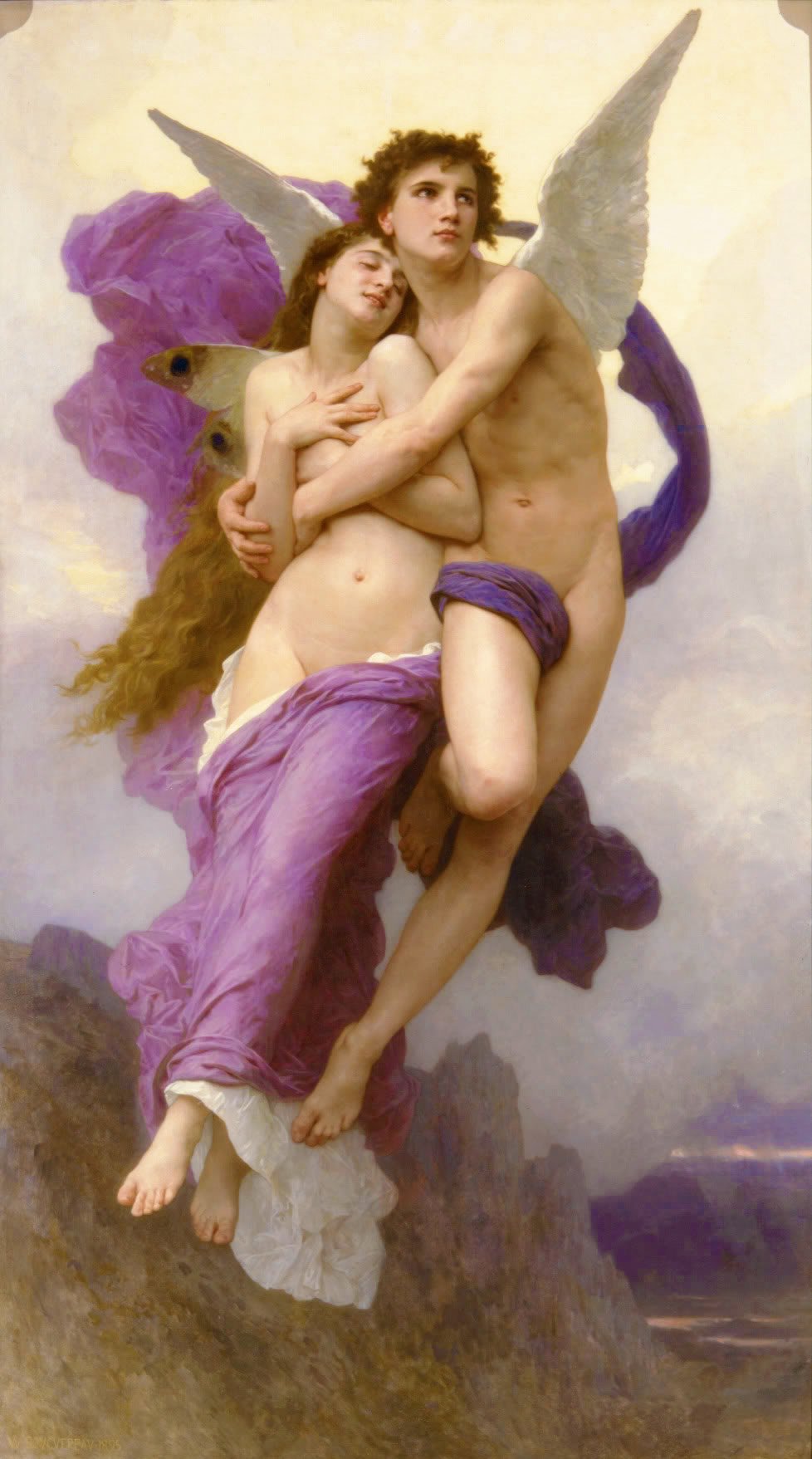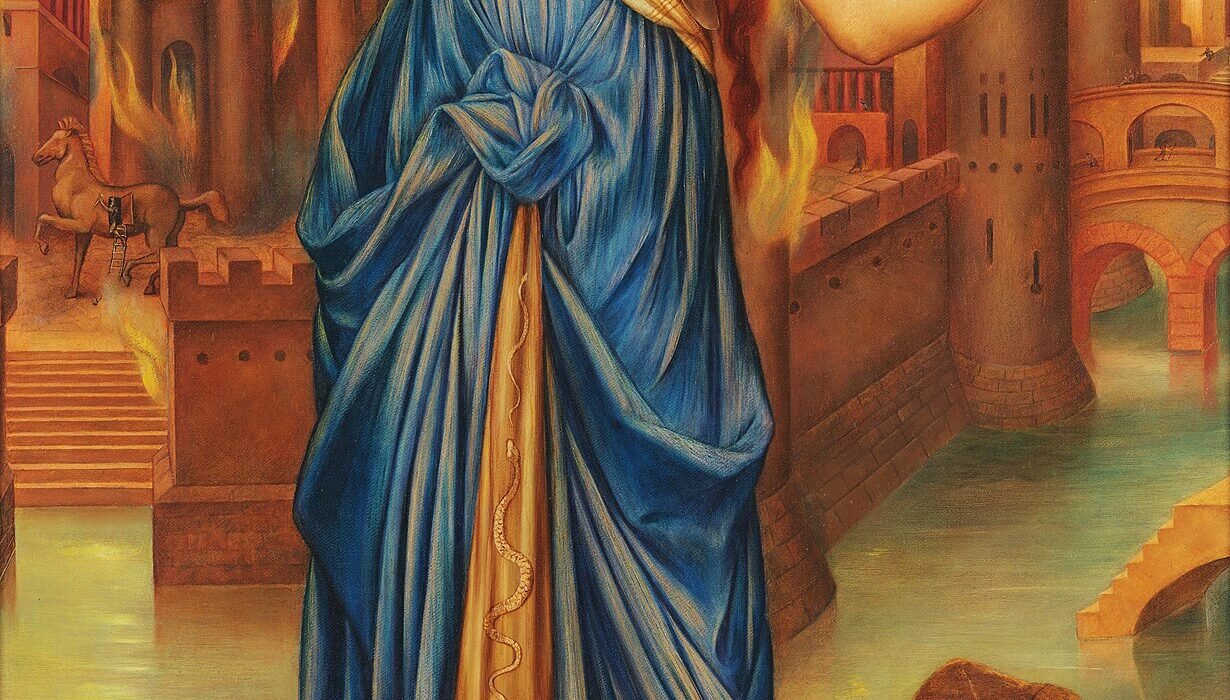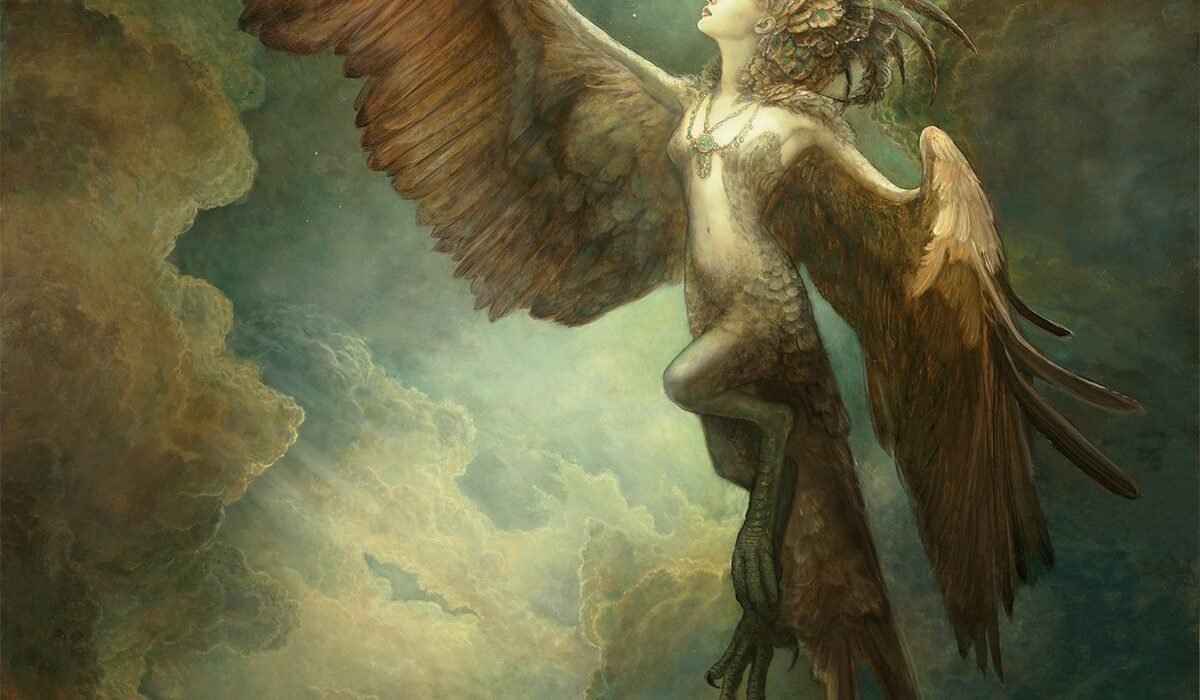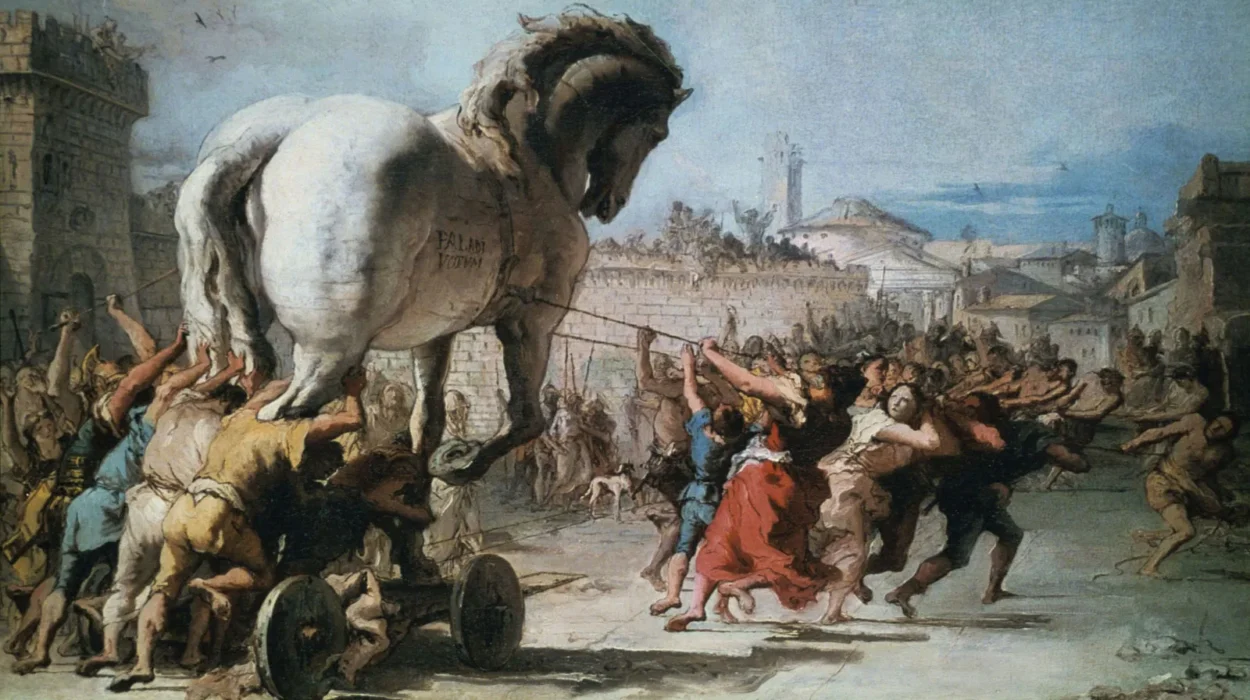Love is one of humanity’s oldest fascinations. It is the force that inspires poetry, moves armies, and shapes destinies. In the myths of ancient Greece, where gods and mortals often collided in tales of passion and tragedy, one story stands apart for its tender beauty and profound meaning—the love story of Eros and Psyche. Unlike many myths where love is fleeting or destructive, this tale endures as one of reconciliation, growth, and the triumph of trust. It is a story that speaks as deeply today as it did thousands of years ago, offering us lessons about vulnerability, jealousy, and the eternal bond between soul and desire.
Among all the legends of Greek mythology, the romance of Eros and Psyche remains one of the few where love conquers trials, where the ending is not despair but transformation, and where the union of lovers reflects something universal about the human experience.
The Birth of Psyche: A Mortal of Divine Beauty
Psyche was no ordinary woman. Her name itself means soul in Greek, and her story reflects the journey of the human spirit. Born a mortal princess, Psyche was so breathtakingly beautiful that people across kingdoms flocked just to see her. Songs and hymns were sung in her honor, and altars meant for Aphrodite, the goddess of love and beauty, were instead crowded with offerings for Psyche.
This mortal woman became the embodiment of beauty on Earth, her radiance eclipsing that of even the divine. But admiration of one is often envy to another, and Psyche’s growing fame awakened the wrath of Aphrodite. For the goddess who reigned supreme over love and desire, the idea that a mortal could rival her beauty was intolerable.
It is here that jealousy set the course for a story both tragic and beautiful, one that begins in bitterness but blossoms into eternal love.
The Wrath of Aphrodite
Aphrodite’s anger was fierce. She could not allow a mortal girl to diminish her divinity. To punish Psyche, she turned to her son, Eros, the god of desire, whose arrows could ignite passion or despair. With his bow, Eros could make any creature fall madly in love—or curse them with obsession. Aphrodite commanded him to make Psyche fall in love with the most hideous creature alive, ensuring that her beauty would bring only misery.
But destiny has a way of twisting the plans of even gods. When Eros approached Psyche, armed with his golden arrows, he saw her for the first time. The sight of her overwhelmed him. In his attempt to obey his mother, he pricked himself with his own arrow and was struck with an irresistible love for the very woman he was supposed to ruin.
In that moment, desire—the god himself—became vulnerable. Eros, who had inspired countless loves among mortals and gods, had never been so undone by the power of his own gift. He was no longer a detached wielder of passion but a captive of it.
Psyche’s Fate and the Prophecy of Doom
Despite her beauty, Psyche’s mortal life was not as blessed as it appeared. Her sisters were married to kings, but Psyche remained unwed. Suitors adored her but feared her perfection, believing she was too divine to be touched. Her parents, distraught, consulted the Oracle of Apollo to understand why their daughter remained unmarried.
The prophecy was chilling: Psyche was destined not for a mortal husband but for a monstrous being. She would be taken to a mountaintop, dressed in funeral attire, and delivered to her fate. There, her so-called husband awaited—something neither human nor divine, but terrifying beyond imagination.
Though stricken with grief, Psyche’s parents obeyed the oracle. They prepared her for her doom and led her to the lonely peak, where she was abandoned to the winds of destiny. Yet instead of terror, Psyche felt something unexpected. The west wind, Zephyrus, gently carried her away, not to a monster’s lair, but to a palace so magnificent it seemed crafted by gods.
The Invisible Husband
The palace where Psyche arrived was filled with wonders. Golden halls, fountains that sang, and voices without bodies guided her every step. She was served with food, bathed in perfumes, and clothed in garments finer than any mortal queen’s. Yet the mystery of her fate deepened when night fell.
In darkness, a husband came to her. He was gentle, loving, and filled her heart with passion. But she could not see his face. He warned her that she must never try to look upon him, for doing so would destroy their bond forever. Trust, he said, was the only condition of their union.
Despite her confusion, Psyche’s nights with her unseen husband filled her with joy. She came to love him not for his face, but for his presence, his kindness, and his devotion. Their love grew, but the mystery gnawed at her soul. Who was he? Was he the monster foretold by the oracle, or something else entirely?
In this tension between trust and curiosity lay the heart of Psyche’s trial.
The Seeds of Doubt
Psyche’s happiness might have endured if not for the return of her sisters. Consumed with envy at her wealth and splendor, they whispered venom into her ears. They convinced her that her husband was indeed the monster the oracle had foretold, and that one day he would devour her.
Fear consumed Psyche’s mind. Torn between her sisters’ warnings and her husband’s command, she decided to break the one rule of her marriage: she would look upon his face.
That night, as Eros slept, Psyche lit a lamp and held it over him. Instead of a monster, she beheld the most beautiful god she had ever seen—Eros himself, radiant with divinity. Her heart swelled with love, but in her trembling awe, a drop of hot oil fell from the lamp and burned his skin. Eros awoke, betrayed.
“You have destroyed our love with doubt,” he cried, before vanishing from her sight.
The palace dissolved, and Psyche was left alone in a barren field, her heart shattered by her own mistake.
Psyche’s Journey of Trials
Desperate to win back her lover, Psyche wandered across the world searching for Eros. She prayed to gods, sought guidance, and endured ridicule. Eventually, she came to Aphrodite herself, hoping the goddess would reunite her with her son.
But Aphrodite, still seething with jealousy, devised cruel trials to break Psyche. The goddess forced her to complete impossible tasks, each meant to crush her spirit.
First, Psyche was commanded to sort a mountain of seeds—barley, millet, poppy, lentils, chickpeas—by nightfall. The task was hopeless, but an army of ants took pity on her and helped her finish.
Next, she was told to collect golden wool from deadly rams with fiery tempers. Guided by a river god, Psyche waited until the rams rested in the shade, gathering their wool from the brambles without harm.
Then, she was tasked with fetching water from the source of the River Styx, which flowed from an impossible, deadly cliff. This time, Zeus’s eagle swooped down, filling her flask.
Finally, Aphrodite demanded the most dangerous task of all: to descend into the Underworld and retrieve a box of beauty from Persephone, queen of the dead. Psyche, armed with guidance and determination, journeyed into Hades itself, where she faced deathly silence and shadows. She secured the box, but on her return, curiosity overcame her. Hoping to gain divine beauty to win back Eros, she opened it—only to fall into a deathlike sleep, trapped by a curse inside.
The Redemption of Love
When Eros learned of Psyche’s plight, his love overcame his anger. He escaped from his mother’s palace and flew to Psyche, brushing away the cursed sleep from her body with a kiss. He forgave her, for he too had learned that love is not without flaws, but it is powerful enough to endure them.
Together, they appealed to Zeus, king of the gods, who was moved by their devotion. He granted Psyche immortality, making her a goddess worthy of Eros. Aphrodite, seeing the inevitability of their union and appeased by Psyche’s humility, relented.
Thus, Eros and Psyche were wed among the gods in Olympus, their love eternal. Their daughter, Hedone, personified delight, the joy that springs from the union of soul and desire.
The Symbolism of the Tale
The myth of Eros and Psyche is not merely a romantic story—it is a profound allegory of the human experience. Psyche, whose name means “soul,” represents the human spirit’s journey. Her trials reflect the struggles of trust, temptation, and perseverance that every soul must endure to find true fulfillment.
Eros, as desire, symbolizes the passion and love that can both wound and heal. Their union speaks to the harmony between reason and passion, between the soul and the heart.
Even the obstacles—the jealousy of Aphrodite, the poisonous whispers of Psyche’s sisters, the impossible trials—mirror the challenges of real love, where doubts, external pressures, and personal failings often threaten to tear bonds apart. Yet the story insists that love, tempered by growth and sacrifice, can overcome even the harshest trials.
Why Their Story Still Matters
In a world where myths often end in tragedy—Orpheus losing Eurydice, Pygmalion’s statue blessed but silent, or Paris and Helen sparking destruction—the tale of Eros and Psyche stands apart. It offers hope, not despair. It shows that love is not perfect, but it is transformative. It demands patience, sacrifice, and forgiveness, but it rewards with transcendence.
That is why this story has endured through centuries, inspiring countless works of art, literature, and philosophy. From Roman retellings in Apuleius’ The Golden Ass to Renaissance paintings and modern reinterpretations, Eros and Psyche continue to remind us of the delicate dance between trust and doubt, longing and fulfillment.
It is, at its core, the most beautiful love story of Greek mythology—not because it is flawless, but because it embraces imperfection and grows stronger from it.
The Everlasting Soul and Desire
The myth of Eros and Psyche is not bound by time or culture. It is as much about us today as it was about mortals in ancient Greece. We are Psyche—searching, doubting, enduring, yearning. We are also Eros—desiring, risking, forgiving. Together, their love reflects the eternal truth that the soul longs for love, and love longs for the soul.
And so, the story closes not in sorrow, but in union. A mortal became a goddess, a god bowed to love, and out of their struggles, a bond was forged that no trial could break.
It is a story that whispers to every heart: love, though fragile, is the strongest force of all.






